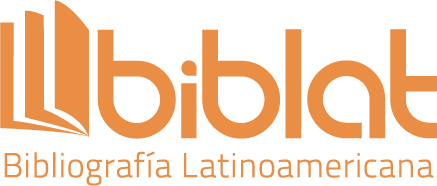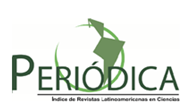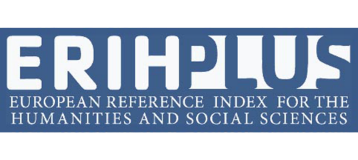Metacognitive judgments in children: A review of conceptual trends in research
DOI:
https://doi.org/10.37511/tesis.v16n1a6Abstract
Metacognitive judgments refer to the beliefs that students have before, during, or after being confronted with a learning task. From the bibliometric analyzes perspective, two meta-analyzes on learning judgments carried out in the United States were found as antecedents of the current study, in which the effect of delayed vs immediate judgments was demonstrated. Objective: To establish the conceptual trends in current research about metacognitive judgments in children through a systematic review. Method: A search was carried out in the Web of Science and Scopus databases between 2016-2020 for articles published in English. Once the selection criteria were applied, the elaboration of tables, graphs and descriptive analysis was carried out. Results: 11 articles that met the inclusion criteria in the study were finally analyzed. Four conceptual trends were found among which an important orientation of the field towards studies of metacognitive monitoring and self-regulated learning was evidenced; a lesser orientation of research about work in judgment measurement and in formative evaluation at the level of self-evaluation. Conclusion: An emphasis on research trends is evidenced by intervention works on metacognitive monitoring.
Downloads
References
Alt, D., & Raichel, N. (2020). Reflective journaling and metacognitive awareness: insights from a longitudinal study in higher education. Reflective Practice, 21(2), 145–158. https://doi.org/10.1080/14623943.2020.1716708
Baars, M., van Gog, T., de Bruin, A., & Paas, F. (2018). Accuracy of primary school children’s immediate and delayed judgments of learning about problem-solving tasks. Studies in Educational Evaluation, 58(February), 51–59. https://doi.org/10.1016/j.stueduc.2018.05.010
Bannert, M., Sonnenberg, C., Mengelkamp, C., & Pieger, E. (2015). Short- and long-term effects of students’ self-directed metacognitive prompts on navigation behavior and learning performance. Computers in Human Behavior, 52, 239–306. https://doi.org/10.1016/j.chb.2015.05.038
Barenberg, J., & Dutke, S. (2019). Testing and metacognition: retrieval practise effects on metacognitive monitoring in learning from text. Memory, 27(3), 269–279. https://doi.org/10.1080/09658211.2018.1506481
Bol, L., Hacker, D. J., Walck, C. C., & Nunnery, J. A. (2012). The effects of individual or group guidelines on the calibration accuracy and achievement of high school biology students. Contemporary Educational Psychology, 37(4), 280–287. https://doi.org/10.1016/j.cedpsych.2012.02.004
Brown, A. (1987). Metacognition, executive control, self-regulation, and other more mysterious mechanisms. In F. Weinert & R. Kluwe (Eds.), Metacognition, motivación and understanding (pp. 65–116). Hillsdale, NJ: Lawrence erlbaum.
Buratti, S., & Allwood, C. (2015). Regulating metacognitive processes-support for a meta-metacognitive ability. In A. Peña-Ayala (Ed.), Metacognition: Fundaments, applications and trends. A prolife of the current state -of-the-art (pp. 17–35). New York: Springer.
Chatzipanteli, A., Grammatikopoulos, V., & Gregoriadis, A. (2014). Development and evaluation of metacognition in early childhood education. Early Child Development and Care, 184(8), 1223–1232. https://doi.org/10.1080/03004430.2013.861456
De Bruin, A. B. H., Thiede, K. W., Camp, G., & Redford, J. (2011). Generating keywords improves metacomprehension and self-regulation in elementary and middle school children. Journal of Experimental Child Psychology, 109(3), 294–310. https://doi.org/10.1016/j.jecp.2011.02.005
Destan, N., Spiess, M. A., de Bruin, A., van Loon, M., & Roebers, C. M. (2017). 6- and 8-year-olds’ performance evaluations: Do they differ between self and unknown others? Metacognition and Learning, 12(3), 315–336. https://doi.org/10.1007/s11409-017-9170-5
Double, K. S., Birney, D. P., & Walker, S. A. (2018). A meta-analysis and systematic review of reactivity to judgements of learning. Memory, 26(6), 741–750. https://doi.org/10.1080/09658211.2017.1404111
Dufresne, A., & Kobasigawa, A. (1989). Children’s Spontaneous Allocation of Study Time : Differential and Sufficient Aspects. Journal of Experimental Child Psychology, 47, 274–296. https://doi.org/10.1016/0022-0965(89)90033-7
Dunlosky, J., & Rawson, K. A. (Eds.). (2019). The Cambridge Handbook of Cognition and Education. Cambridge: Cambridge University Press. https://doi.org/10.1017/9781108235631
Dunlosky, J., & Tauber, S. K. (2012). Understanding people’s metacognitive judgments: an isomechanism framework and its implications for applied and theoretical research. In Timothy Perfect & S. Lindsay (Eds.), The SAGE Handbook of applied memory (pp. 1–10). London: Sage Publications Inc.
Efklides, A. (2014). How does metacognition contribute to the regulation of learning? An integrative approach. Psychological Topics, 23(1), 1–30. https://psycnet.apa.org/record/2014-25618-001
Flavell, J. (2000). Development of children’s knowledge about the mental world. International Journal of Behavioral Development, 24(1), 15–23. https://doi.org/10.1080/016502500383421
Flavell, J. (1979). Metacognition and Cognitive Monitoring A New Area of Cognitive — Developmental Inquiry. American Psychologist, 34(10), 906–911. https://doi.org/10.1037/0003-066x.34.10.906
Flavell, J. (2000). El desarrollo cognitivo. Madrid: Visor Dis. S.A.
Flavell, J. (1987). Speculation about nature and develpment of metacognition. In F. Weinert & R. Kluwe (Eds.), Metacognition, motivación and understanding (pp. 21–29). Hillsdale, NJ:Lawrence Erlbaum.
Fraile, J., Pardo, R., & Panadero, E. (2017). ¿Cómo emplear las rúbricas para implementar una verdadera evaluación formativa? [How use rubrics for enhancing real formative assessment?]. Revista Complutense de Educación, 28(4), 1321–1334. https://doi.org/10.5209/RCED.51915
Freeman, E., Karayanidis, F., & Chalmers, K. (2017). Metacognitive monitoring of working memory performance and its relationship to academic achievement in Grade 4 children. Learning and Individual Differences, 57(October 2016), 58–64. https://doi.org/10.1016/j.lindif.2017.06.003
Geurten, M., & Meulemans, T. (2017). The effect of feedback on children’s metacognitive judgments: a heuristic account. Journal of Cognitive Psychology, 29(2), 184–201. https://doi.org/10.1080/20445911.2016.1229669
Gidalevich, S, & Kramarski, B. (2019). The value of fixed versus faded self-regulatory scaffolds on fourth graders’ mathematical problem solving. Instructional Science, 47(1), 39–68. https://doi.org/10.1007/s11251-018-9475-z
Gidalevich, Stella, & Kramarski, B. (2019). The value of fixed versus faded self-regulatory scaffolds on fourth graders’ mathematical problem solving. Instructional Science, 47(1), 39–68. https://doi.org/10.1007/s11251-018-9475-z
Gutierrez, A. (2012). Enhancing the calibration accuracy of adult learners: A multifaceted intervention. University Libraries- University of Nevada- Las Vegas.
Gutierrez, A. P., & Price, A. F. (2017). Calibration Between Undergraduate Students’ Prediction of and Actual Performance: The Role of Gender and Performance Attributions. Journal of Experimental Education, 85(3), 486–500. https://doi.org/10.1080/00220973.2016.1180278
Gutierrez, A. P., Schraw, G., Kuch, F., & Richmond, A. S. (2016). A two-process model of metacognitive monitoring : Evidence for general accuracy and error factors. Learning and Instruction, 44, 1–10. https://doi.org/10.1016/j.learninstruc.2016.02.006
Hart, J. (1965). Memory and the feeling-of-knowing experience. Journal of Educational Psychology, 56, 208–216. https://doi.org/10.1037/h0022263
Hart, J. (1967). Memory and the memory-monitoring process. Journal of Verbal Learning and Verbal Behavior, 6, 685–691. https://doi.org/10.1016/S0022-5371(67)80072-0
Higgins, J., & Green, S. (2008). Cochrane handbook for sytematic reviews of interventions. England: Wiley-Blackwell.
Huff, J. D., & Nietfeld, J. L. (2009). Using strategy instruction and confidence judgments to improve metacognitive monitoring. Metacognition and Learning, 4(2), 161–176. https://doi.org/10.1007/s11409-009-9042-8
Keren, G. (1991). Calibration and probability judments: conceptual and methodological issues. Acta Psychologica, 72(2), 217–273. https://doi.org/10.1016/0001-6918(91)90036-Y
Koriat, A. (1993). How do we know that we know? The assessibility model of the feeling of knowing. Psychological Review, 100(4), 609–639. https://doi.org/10.1037/0033-295X.100.4.609.
Koriat, A. (1997). Monitoring One’s Own Knowledge during Study: A Cue-Utilization Approach to Judgments of Learning. Journal of Experimental Psychology: General, 126(4), 349–370. https://doi.org/10.1037/0096-3445.126.4.349
Krebs, S. S., & Roebers, C. M. (2012). The impact of retrieval processes, age, general achievement level, and test scoring scheme for children’s metacognitive monitoring and controlling. Metacognition and Learning, 7(2), 75–90. https://doi.org/10.1007/s11409-011-9079-3
Kuhn, D. (1989). Children and adults as intuitive scientist. Psychol. Rev, 96, 674–689. https://doi.org/10.1037/0033-295X.96.4.674
Lingel, K., Lenhart, J., & Schneider, W. (2019). Metacognition in mathematics: do different metacognitive monitoring measures make a difference? ZDM - Mathematics Education, 51(4), 587–600. https://doi.org/10.1007/s11858-019-01062-8
Nelson, T., & Narens, L. (1990). Metamemory: a theoretical framework and new findings. In G. Bower (Ed.), The Psychology of Learning and Motivation (pp. 125–173). New York: Academic Press.
Nelson, T., & Narens, L. (1994). Why investigate metacognitive? In J. Metcalfe & A. Shimamura (Eds.), Metacognition: Knowing about knowing (pp. 1–25). Cambridge: The MIT Press Cambridge. https://psycnet.apa.org/record/1994-97967-001
Nelson, T. O. (1996). Consciousness and Metacognition. American Psychologist, 51(2), 102–116. https://doi.org/10.1037/0003-066X.51.2.102
Nelson, T. O., & Narens, L. (2000). Metamemory: A theoretical framework and new findings. The Psychology of Learning and Motivation, 26, 125–173. https://doi.org/10.1016/S0079-7421(08)60053-5
Nietfeld, J. L., Cao, L., & Osborne, J. W. (2006). The effect of distributed monitoring exercises and feedback on performance, monitoring accuracy, and self-efficacy. Metacognition and Learning, 1(2), 159–179. https://doi.org/10.1007/s10409-006-9595-6
Panadero, E. (2017). A review of self-regulated learning: Six models and four directions for research. Frontiers in Psychology, 8, 1–28. https://doi.org/10.3389/fpsyg.2017.00422
Panadero, E., & Alonso- Tapia, J. (2014). Teorías de autorregulación educativa: una comparación y reflexión teórica. Psicología Educativa, 20(1), 11–22. https://doi.org/10.1016/j.pse.2014.05.002
Panadero, E., Broadbent, J., Boud, D., & Lodge, J. (2019). Using formative assessment to influence self- and co-regulated learning: the role of evaluative judgement. European Journal of Psychology of Education, 34(3), 535–557. https://doi.org/10.1007/s10212-018-0407-8
Panadero, E., Jonsson, A., & Strijbos, J. (2016). Scaffolding self-regulated learning through self-assessment and peer assessment: Guidelines for classroom implementation. In D. Laveault & L. Allal (Eds.), Assessment for Learning: Meeting the challenge of implementation (pp. 311–326). New York: Springer International publishing.
Paris, S., & Byrnes, J. (1989). The constructivist approach to self- regulation and learning in the classroom. In B. Zimmerman & D. Schunk (Eds.), Self -regulated learning and academic achievement (pp. 169–200). New York: Springer- Verlag.
Peña-Ayala, A., & Cárdenas, L. (2015). A conceptual model of the metacognitive activity. In A. Peña-Ayala (Ed.), Metacognition: Fundaments, applications and trends. A prolife of the current state -of-the-art (pp. 39–64). New York: SPRINGER.
Pesout, O., & Nietfeld, J. (2020). The Impact of Cooperation and Competition on Metacognitive Monitoring in Classroom Context. Journal of Experimental Education, 88. 1-23. https://doi.org/10.1080/00220973.2020.1751577
Petticrew, M., & Roberts, H. (2008). Systematic Reviews in the social sciences. New York: John Wiley y Sons, Ltd.
Rhodes, M. G., & Tauber, S. K. (2011). The Influence of Delaying Judgments of Learning on Metacognitive Accuracy: A Meta-Analytic Review. Psychological Bulletin, 137(1), 131–148. https://doi.org/10.1037/a0021705
Roebers, C. M., Krebs, S. S., & Roderer, T. (2014). Metacognitive monitoring and control in elementary school children: Their interrelations and their role for test performance. Learning and Individual Differences, 29, 141–149. https://doi.org/10.1016/j.lindif.2012.12.003
Roelle, J., Nowitzki, C., & Berthold, K. (2017). Do cognitive and metacognitive processes set the stage for each other? Learning and Instruction, 50, 54–64. https://doi.org/10.1016/j.learninstruc.2016.11.009
Sawyer, K. (2014). The Cambridge handbook of the learning sciences. New York: Cambridge University Press.
Schneider, W., & Lockl, K. (2002). The development of metacognitive knowledge iin children and adolescents. In T Perfect & B. Schwartz (Eds.), Applied Metacognition (pp. 224–257). Cambrindge, MA: Cambrindge University Press.
Schraw, G. (2009a). A conceptual analysis of five measures of metacognitive monitoring. Metacognition and Learning, 4(1), 33–45. https://doi.org/10.1007/s11409-008-9031-3
Schraw, G. (2009b). Measuring metacognitive judgments. In D. J. Hacker, J. Dunlosky, & A. Graesser (Eds.), Handbook of Metacognition in Education (pp. 415–429). New York: Routledge.
Schraw, G, & Gutiérrez, A. (2015). Metacognitive strategy instruction that highlights the role of monitoring and control processes. In A. Peña- Ayala (Ed.), Metacognition: Fundaments, applications and trends. A prolife of the current state -of-the-art (pp. 3–14). New York: Springer.
Schraw, G, Kuch, F., Gutierrez, A., & Richmond, A. (2014). Exploring a three-level model of calibration accuracy. Journal of Educational Psychology, 106(4), 1192–1202. https://doi.org/10.1037/a0036653.
Schraw, G, & Moshman, D. (1995). Metacognitive eories Metacognitive Theories. Educational Psychology Review, 7(4), 351–371. https://doi.org/10.1007/BF02212307
Schraw, Gregory. (1994). The Effect of Metacognitive Knowledge on Local and Global Monitoring. Contemporary Educational Psychology, 19(2), 143–154. https://doi.org/10.1006/ceps.1994.1013
Schraw, Gregory. (2002). Promoting general metacognitive awareness. In H. Hartman (Ed.), Metacognition in learning and instruction: Theory, research and practice (pp. 3–16). London: Kluwer Academic.
Schraw, Gregory, & Sperling- Dennison, R. (1994). Assesing metacognitive awareness. Contemporany Educational Psychology, 19, 460–475. https://doi.org/10.1006/ceps.1994.1033
Shaw, S., Kuvalja, M., & Sutu, I. (2018). An Exploration of the nature and assessment of student reflection. Research Matters, 25, 2–8. https://www.cambridgeassessment.org.uk/Images/476532-an-exploration-of-the-nature-and-assessment-of-student-reflection.pdf
Silamani, J., & Guirao, G. (2015). Utilidad y tipos de revisión de literatura. ENE, Revista de Enfermeria, 9(2), 1–14. http://dx.doi.org/10.4321/S1988-348X2015000200002
Smith, D. (1999). Use of the Anchoring and Adjustment Heuristic by Children. Current Psychology: Developmental, Learning, Personality, 18(3), 294–300. https://doi.org/10.1007/s12144-999-1004-4
Sperling, R., Ramsay, C., Richmond, A., Nietfeld, J., Reeves, P., & Hood, A. (Abril, 2012). General monitoring and instructional scaffolds that support metacognition in middle school students. In Annual meeting of American Educational Research Association, Vancouver, British Columbia, Canada.
Tarricone, P. (2011). The Taxonomy of Metacognition. Canada: Psychology Press.
Urban, K, & Urban, M. (2018). Influence of fluid intelligence on accuracy of metacognitive monitoring in preschool children fades with the calibration feedback. Studia Psychologica, 60(2), 123–136. https://doi.org/10.21909/sp.2018.02.757
Urban, K., & Urban, M. (2020). Effects of performance feedback and repeated experience on self-evaluation accuracy in high- and low-performing preschool children. European Journal of Psychology of Education. Advance online publication. https://doi.org/10.1007/s10212-019-00460-6
van der Stel, M., Veenman, M. V. J., Deelen, K., & Haenen, J. (2010). The increasing role of metacognitive skills in math: A cross-sectional study from a developmental perspective. ZDM - International Journal on Mathematics Education, 42(2), 219–229. https://doi.org/10.1007/s11858-009-0224-2
van Loon, M. M., Destan, N., Spiess, M. A., de Bruin, A., & Roebers, C. M. (2017). Developmental progression in performance evaluations: Effects of children’s cue-utilization and self-protection. Learning and Instruction, 51(SI), 47–60. https://doi.org/10.1016/j.learninstruc.2016.11.011
Veenman, M. V. . (2016). Metacognition. In P. Afflerbach (Ed.), Handbook of individual differences in reading: reader text, and context (pp. 26–40). London: Routledge.
Wang, Y., & Sperling, R. A. (2020). Understanding and supporting Chinese middle Schoolers’ monitoring accuracy in mathematics. Metacognition and Learning. Advance online publication. https://doi.org/10.1007/s11409-020-09238-4
Whitebread, D., Coltman, P., Pasternak, D. P., Sangster, C., Grau, V., Bingham, S., … Demetriou, D. (2009). The development of two observational tools for assessing metacognition and self-regulated learning in young children. Metacognition and Learning, 4(1), 63–85. https://doi.org/10.1007/s11409-008-9033-1
Winne, P. (2001). Self-regulated learning viewed from models of information processing. In B. Zimmerman & D. Schunk (Eds.), Self-regulation and academic achievement: Theoretical perspectives (pp. 153–189). Mahwah, NJ: Erlbaum.
Winne, P., & Azevedo, R. (2014). Metacognition. In K. Sawyer (Ed.), The Cambridge Handbook of the Learning Sciences (pp. 63–87). New York: Cambridge University Press.
Winne, P. H., & Hadwin, A. F. (1998). Studying as self-regulated engagement in learning. In Metacognition in educational Theory and practice (pp. 277–304). Hillsdale, NJ: Erlbaum.
Winne, P., & Hadwin, A. (1988). Studying as self-regulated learning. In D. Hacker, J. Dunlosky, & A. Graesser (Eds.), Metacognition in education theoy and practice (pp. 277–394). Mahwah, NJ: Erlbaum.
Zimmerman, B. (2001). Theories of self-regulated learning and academic achievement: An overview and analysis. In D. Schunk & B. Zimmerman (Eds.), Self-regulated learning and academic achievement (pp. 267–295). New York: Lawrence Erlbaum Associates.
Zimmerman, B. (2008). Investigating self-regulation and motivation: Historical background, methodological developments, and future prospects. American Educational Research Journal, 45(1), 166–183. https://doi.org/10.3102/0002831207312909
Zimmerman, B., & Moylan, A. (2009). Self -regulation: where metacognition and motivation intersect. In D. J. Hacker, J. Dunlosky, & A. Grasser (Eds.), Handbook of Metacognition in Education (pp. 239–315). New York: Routledge.
Downloads
Published
Issue
Section
License

This work is licensed under a Licencia Creative Commons Atribución-NoComercial-













